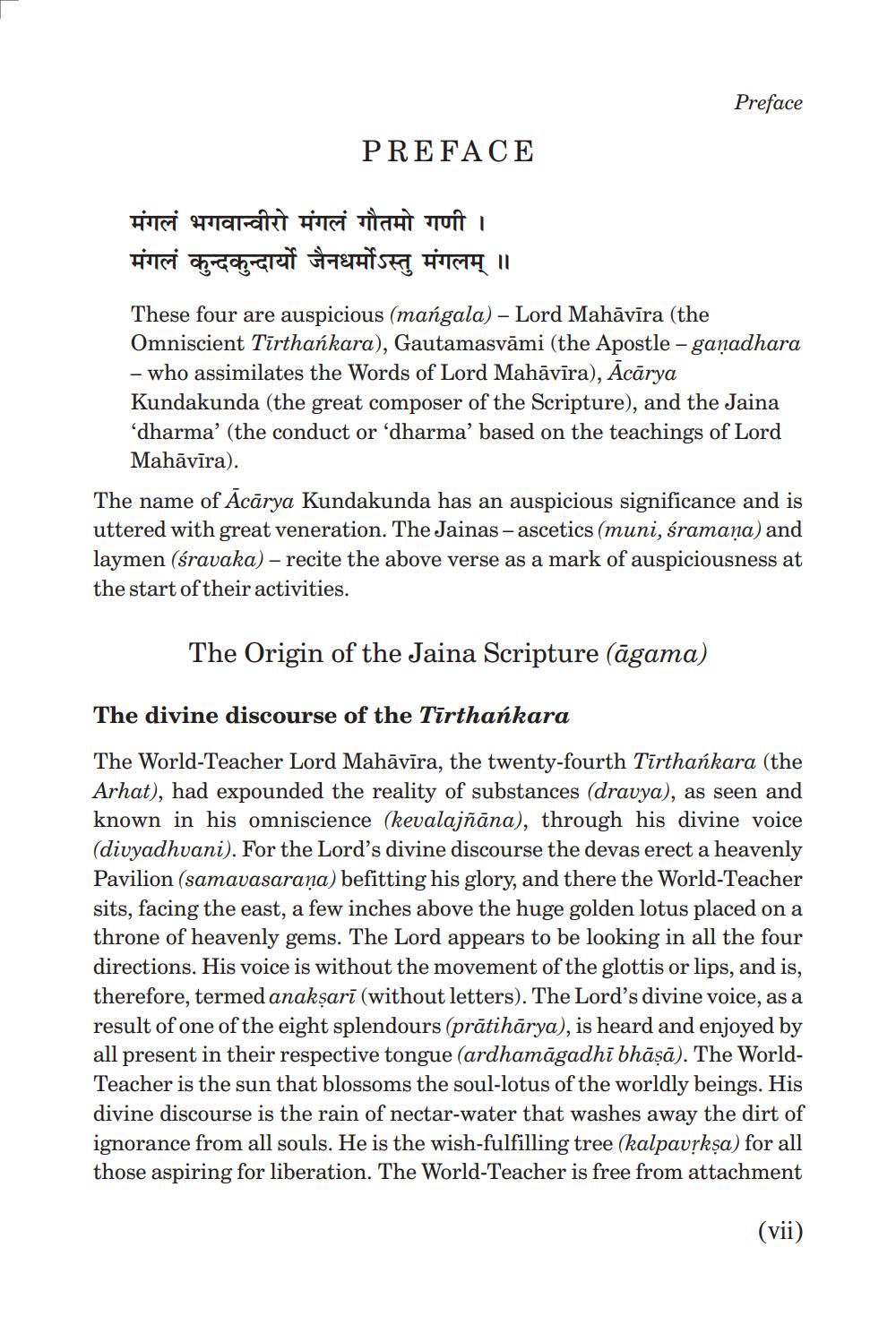________________
Preface
PREFACE
मंगलं भगवान्वीरो मंगलं गौतमो गणी । मंगलं कुन्दकुन्दार्यो जैनधर्मोऽस्तु मंगलम् ॥
These four are auspicious (mangala) – Lord Mahāvīra (the Omniscient Tīrthańkara), Gautamasvāmi (the Apostle - gañadhara - who assimilates the Words of Lord Mahāvīra), Ācārya Kundakunda (the great composer of the Scripture), and the Jaina
dharma' (the conduct or 'dharma' based on the teachings of Lord Mahāvīra). The name of Ācārya Kundakunda has an auspicious significance and is uttered with great veneration. The Jainas - ascetics (muni, śramaņa) and laymen (śravaka) – recite the above verse as a mark of auspiciousness at the start of their activities.
The Origin of the Jaina Scripture (āgama)
The divine discourse of the Tīrthankara
The World-Teacher Lord Mahāvīra, the twenty-fourth Tīrthankara (the Arhat), had expounded the reality of substances (dravya), as seen and known in his omniscience (kevalajñāna), through his divine voice (divyadhvani). For the Lord's divine discourse the devas erect a heavenly Pavilion (samavasarana) befitting his glory, and there the World-Teacher sits, facing the east, a few inches above the huge golden lotus placed on a throne of heavenly gems. The Lord appears to be looking in all the four directions. His voice is without the movement of the glottis or lips, and is, therefore, termed anakşarī (without letters). The Lord's divine voice, as a result of one of the eight splendours (prātihārya), is heard and enjoyed by all present in their respective tongue (ardhamāgadhi bhāṣā). The WorldTeacher is the sun that blossoms the soul-lotus of the worldly beings. His divine discourse is the rain of nectar-water that washes away the dirt of ignorance from all souls. He is the wish-fulfilling tree (kalpavrksa) for all those aspiring for liberation. The World-Teacher is free from attachment
(vii)




